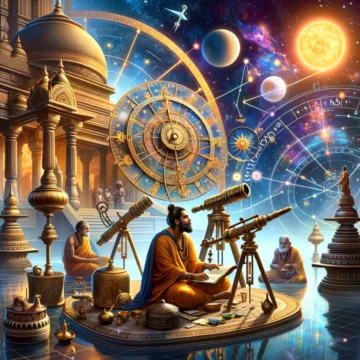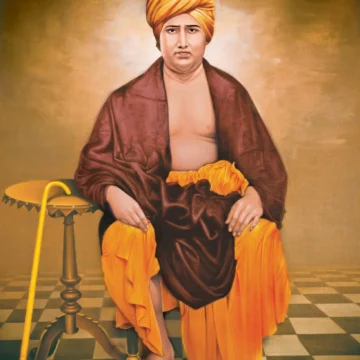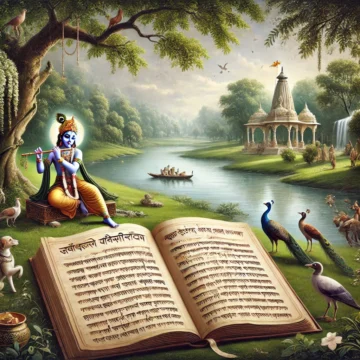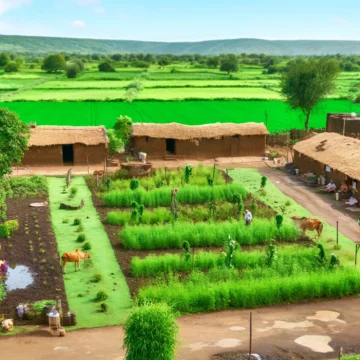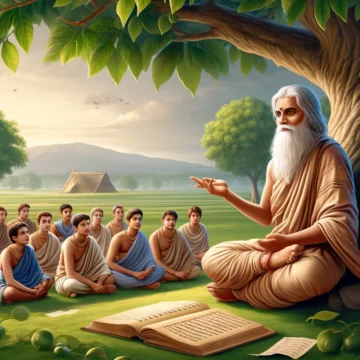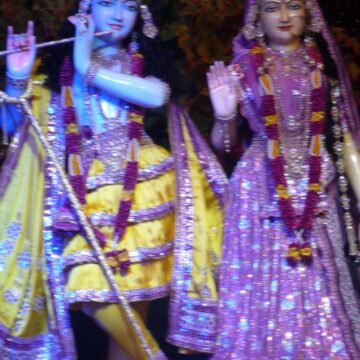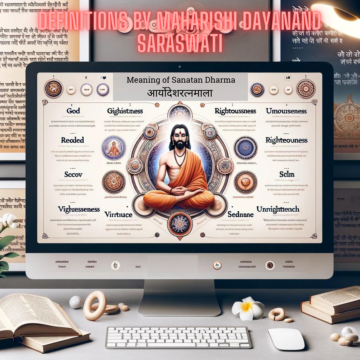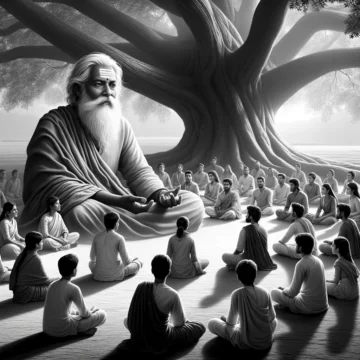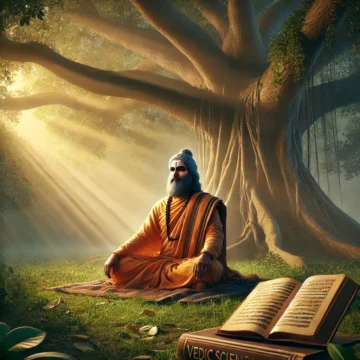Vedic science, rooted in ancient Indian knowledge, spans astronomy, mathematics, architecture, medicine, Ayurveda, and Yoga. This heritage continues to inspire modern science. During the Vedic period, astronomy was crucial in religious and daily life, with texts like the Rigveda discussing celestial movements. Scholars like Aryabhata and Brahmagupta significantly contributed to Indian astronomy, influencing future developments and connecting Vedic texts with contemporary scientific theories.
Guru Arjan Dev Martyrdom: Consequence of Islamic Fundamentalism
Guru Arjan Dev Martyrdom Commemorating the Martyrdom of Guru Arjan Dev: As part of our weekly exploration of spirituality and worship at HinduInfoPedia.org, this Friday, May 31, 2024, we delve into a significant historical event: the martyrdom of Arjan Dev. Shri Guru Arjan Dev Ji, the fifth Sikh Guru, was martyred on May 30, 1606,...
Dharma Meaning: Key Concepts in Hindu Philosophy
Continuing our weekly thematic exploration at HinduInfoPedia.org, this post, scheduled for May 29, 2024, delves deeper into the meaning of dharma within Sanatan Dharma. Building on last week’s discussion by Maharishi Dayanand Saraswati, founder of Arya Samaj, we explore the next 36 definitions from his work "आर्योदेशरत्नमाला," highlighting Hindu philosophy's inclusivity and practical applications in daily life.
Shrimad Bhagwat: Exploring its Teachings and Timeless Wisdom
The Shrimad Bhagwat, a cornerstone of Vedic literature, explores devotion and righteousness through Lord Krishna's teachings. Composed by sage Vyasa, its twelve cantos delve into philosophical teachings and spiritual insights. From Krishna's vibrant tales in the Tenth Canto to the profound Uddhava Gita, it offers a comprehensive guide to spiritual enlightenment and influences Indian cultural and spiritual life.
Agriculture in India: Comparing with Vedic Agriculture Principles
Explore the ancient wisdom of Vedic agriculture, blending cultural heritage, scientific precision, and spiritual insight. Drawing from texts like the Rigveda and Yajurveda, it aligns farming with natural cycles, using techniques like crop rotation and natural fertilizers. This sustainable approach nourishes both body and soul, fostering a profound connection with nature and community well-being.
Guru Shishya Parampara: Preserving the Sacred Relationship
The Guru Shishya Parampara, a sacred teacher-student tradition, has preserved Hindu knowledge for over 4000 years. Despite historical setbacks like the burning of Nalanda University, this tradition ensured the continuity of wisdom through oral teachings. Today, it remains a cornerstone of Hindu education, blending ancient practices with modern needs.
Top Ten Lord Krishna Temples
Join us on a spiritual voyage through the "Top Ten Lord Krishna Temples," a journey that not only reflects architectural grandeur but also embodies the profound spirituality and cultural heritage integral to Hindu worship. From the historic depths of Mathura's Krishna Janmabhoomi to the modern magnificence of Bengaluru's ISKCON Temple, each site reveals its unique narrative. Experience the vibrant festivities at Banke Bihari Temple during Holi and feel the serenity of Vrindavan's Prem Mandir. Delve into the traditional rituals at Udupi Sri Krishna Matha and witness community unity at Nathdwara's Srinathji Temple. These temples are not just structures of stone; they are vibrant centers of life, inspiring devotion with every story they tell.
Meaning of Sanatan Dharma: Learn Concepts in Hindu Philosophy
Continuing our weekly thematic exploration at HinduInfoPedia.org, this blog post, scheduled for May 22, 2024, delves into the meaning of Sanatan Dharma, as elucidated by Maharishi Dayanand Saraswati, a revered scholar and founder of the Arya Samaj. His seminal work, "आर्योदेशरत्नमाला," offers 100 essential definitions that form the core of Vedic knowledge, shaping our understanding of Hindu philosophy and its practical applications in daily life.
Sanatan Dharma, unlike more doctrinally rigid religions like Christianity or Islam, presents a unique framework that accommodates diverse beliefs, including atheism. This flexibility allows for various systems of salvation, reflecting the inclusivity fundamental to Hindu thought. Followers who engage in idol worship and those who do not are equally recognized as Hindus.
Arya Samaj, initiated by Maharishi Dayanand, advocates for a form of worship that eschews idolatry, aligning with the tenets of Vedic scripture. This blog series explores these nuances, with special commentary by the author on definitions that particularly reflect the Arya Samaj’s perspectives. Through this exploration, we aim to deepen the reader's appreciation for the broad and inclusive nature of Hinduism and the specific interpretations of Maharishi Dayanand Saraswati.
Hindu Sacred Texts: The Building Blocks of Hinduism
Hinduism, one of the world's most ancient religions, offers a profound collection of sacred texts that have shaped spiritual and everyday life across millennia. Central to these are the Vedas, described as the core of Hindu philosophy and spirituality, along with a diverse array of texts like the Upanishads, Smritis, and the epic tales of the Ramayana and Mahabharata. Each layer, from the foundational Vedas to the practical narratives of the Puranas, serves to guide adherents in their spiritual journey, reflecting the intricate tapestry of rituals, ethics, and cultural customs inherent in Hindu tradition.
Spiritual Journey of Chandrasekharendra Saraswati
On the birth anniversary of Chandrasekharendra Saraswati, explore the profound spiritual journey and teachings of this revered figure. Delve into his contributions to Vedic science, his philosophical teachings, and the enduring impact of his legacy that continues to influence spiritual and educational realms.


